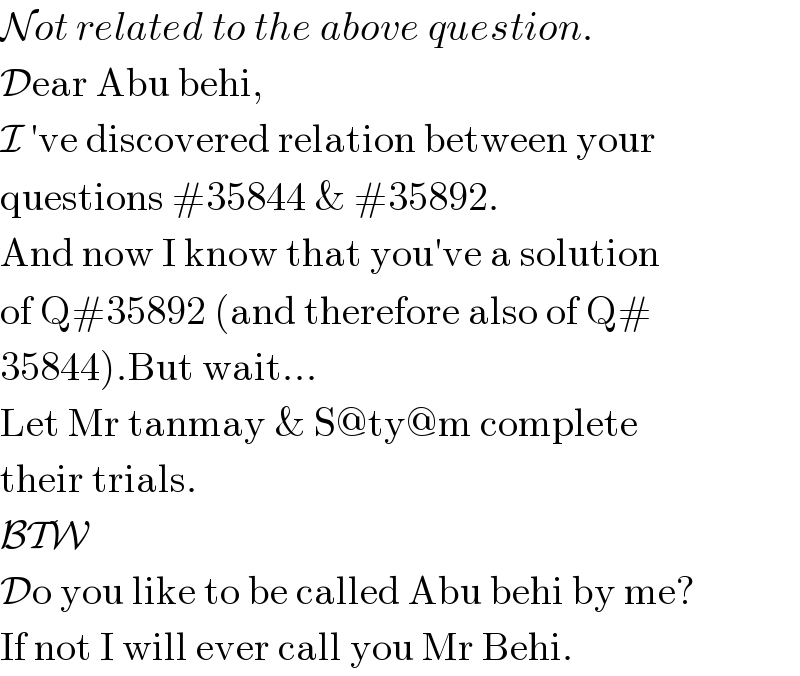
Question and Answers Forum
Question Number 36061 by Raj Singh last updated on 28/May/18

Commented by Rasheed.Sindhi last updated on 28/May/18

Commented by behi83417@gmail.com last updated on 28/May/18

Answered by math1967 last updated on 28/May/18
![I think L.H.S(1/(1+a+b^(−1) ))+(1/(1+b+c^(−1) ))+(1/(1+c+a^(−1) )) =(1/(1+a+(1/b)))+(1/(1+b+(1/c)))+(1/(1+c+(1/a))) =(b/(b+ab+1))+(1/(1+b+ab))+(1/(1+(1/(ab))+(1/a))) [∵abc=1,∴(1/c)=ab and c=(1/(ab))] =(b/(b+ab+1))+(1/(b+ab+1))+((ab)/(ab+1+b)) =((b+1+ab)/(b+1+ab))=1=R.H.S Am I correct?](Q36065.png)
Commented by Rasheed.Sindhi last updated on 28/May/18

Commented by math1967 last updated on 29/May/18

